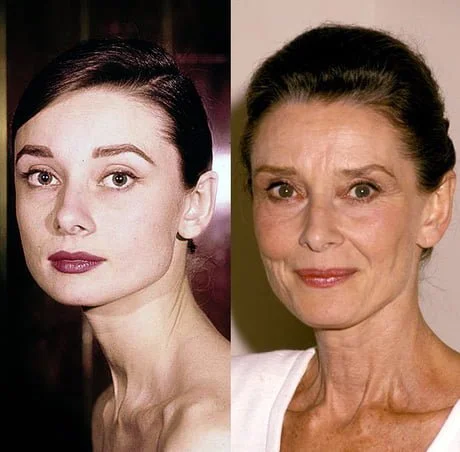Noah introduces technology as morally neutral.
Noah was a good enough engineer, whether he got the plans from God or dreamed them up himself under the inspiration of God, to correctly execute these very ambitious plans. The plans are spelled out in detail. The ark is to have three levels. It is to be caulked both inside and outside. It is to be three hundred cubits long, fifty cubits wide and thirty cubits high. The dimensions of the ark are given so distinctly that they serve the literary purpose, of course, of concretizing the description and so make it as if it happened. But this is an interesting set of descriptors. “Genesis” could have said large or very large or as tall as a cedar of Lebanon or some other metaphor for size. “Genesis” does tend to exaggerate when it gives particular numbers, as when it gives the ages of the generations between Adam and Noah. That makes the story legendary: an exaggeration of what might have happened in the past rather than treating the past as having a very different set of processes than does the present, which is what happens when a mythology is created. There seems to be a different reason for concretizing here in the Noah story.
That different reason for giving particulars of measurement is to suggest the magnitude of the building task, how much was to be accomplished if the task were undertaken, as is the case when we nowadays say a building will be 110 stories just so it can beat out the Empire State Building’s 103 stories. Numbers are the comparatives which show engineering greatness, both the grandeur and the near or actual impossibility of the task to be undertaken. Noah’s undertaking and not just his character are legendary.
The magnitudes specified for the ark are so great as to stagger the imagination of any era in which it was written about for inclusion in “Genesis”. They would have seemed implausible, and yet they are there in black and white. It is to be remembered that ships of a similar size were not built until the battleships that made up Theodore Roosevelt’s Great White Fleet were built in the first decade of the Twentieth Century, and they didn’t have the draft of the ark which, after all, was a cargo ship rather than a battlewagon. So it made sense, or at least a bit of sense, for the writers and editors of this passage of “Genesis” to think that they could include pairs of all the animals of the world, including the crawling things, if we take into account that they did not know about most species of insects or even of many mammals. And Noah, not God, is given credit for having built this ship, and so deserves credit in history for that alone, not to speak of having rescued humanity.
The scale of the ship opens up the reader’s imagination to a grandeur possible in legends without taking on the baggage of what would be required in an epic. Noah is not portrayed as particularly brave or wise, adjectives readily applied to characters in the Iliad or in Samuel I and II. Neither he nor the narrator reflects on the nature of the human condition, which is what characters in epics regularly do. And, most important, the conflict in the story of Noah is existential only in the sense that it involves the future of humanity, not that it involves some fundamental relation between people and the gods (or God), as would be the case in St. Augustine’s “The City of God”, an epic-like retelling of the history of the world, or in Samuel I and II which also tells how human evils work their ways into human history, or in “The Odyssey”, which recounts how the foibles of mankind, harmless and customary, or deeply rooted in greed and memory, make it difficult for Odysseus to get back to and take control of his home. But epic it is, even though it is so brief, because it is the adventure of a man overcoming all the forces that swirl around him in the service of a magnificent ending.
Noah was not only the inspirer of and the design engineer for the ark; he was also its captain--Captain Kirk or Sir Francis Drake, it will be remembered, each holding only the last of the three titles. The very brief story of Noah details the days of the disaster and the mission to overcome the disaster with agonizing precision, just as is done by a procedural murder mystery or a movie about averting nuclear apocalypse. God announces that He will open the heavens for forty days and forty nights of rain, which presumably has been calculated as enough time to get the job done of cleansing the earth of its people by allowing waters to rise to a point higher than that of the highest mountains, the story going on to tell precisely how high over the mountains the water will rise, to fifteen cubits above their peaks. That is planning worthy of D-Day estimates of how much weight the sand on Omaha Beach can carry.
When the voyage begins, the narrator points out the number of days that have gone by since the rains started. The waters abated one hundred and fifty days after the flood had been initiated. Ten months after the flood began, the tops of the mountains appeared. Meanwhile, Noah had sent out a raven forty days after the rains stopped (because if the time is counted from the beginning of the flood, then he would have sent out the raven on the day the rains ceased, which would have been a foolish venture). Then he waited seven days after another dove had been sent (presumably well after the initial raven so as to keep the counts of days aligned) to send out the second dove that did bring back an olive leaf. The dove sent out just seven days later did not return at all, which suggested that it had found a place to land, just as the earlier dove had found trees still growing, which suggests that trees survived the flood.
Think of what Noah had achieved. He had figured out a way to measure the state of the inundation, using his birds as instruments. That is the ingenuity of a technological mind that uses collateral features of the birds, such as their needing places to land and knowing how to get back to the ship if need be, to tell what is going on. Noah does not require God to tell him; nor does he just wait patiently; nor does he speculate. He engineers to provide himself with the intelligence he needs to keep the crew’s morale up, for what other end would it serve to find out how the abatement of the flood was going, since he couldn’t do anything about it but wait?
Noah’s ark had been out of sight of land for at least one hundred and fifty days. (We are not told how long after that the ark came to rest on Ararat.) That is quite a voyage at a time when ships for the most part clung to coast lines. Indeed, it is difficult to think of any actual voyage on the Earth’s seas that lasted so long out of the sight of land. Columbus went five weeks. Captain Bligh, in his long boat, spent forty seven days on his way to Timor. Even nuclear subs come to the surface to look at ice floes. But Noah had no reminder that there was any dry land out there till the second dove returned. Now that is quite an accomplishment, the greatest feat of seamanship ever imagined, not to be equaled until astronauts will find themselves in space for a year on the way to Mars, which they will be able to see growing in size as they approach it, and also every day in contact with their fellow humans back on Earth.
It is difficult to believe that the frightfulness of that separation from a humanity that was, after all, all dead, as well as from the land they would have to return to, would not make the psychological pressures on Noah and his family intense, though the Bible does not go into that. What we do know is that Noah became a drunk once he got back to Earth and reestablished human title to it by building an altar to honor God. It is a minor failing for a man who has accomplished so much and has for the rest of his life to contemplate what he had done. As usual, the Bible does not describe motives, but leaves them as inferences for the reader as those can be made from the few bits of evidence provided. Noah was entitled to be a cranky old sot, and his sons knew that.
Technology as the theme or underlying construct of the story of Noah might seem to be an “interpretation” in the bad sense of that word: it might just be the imposition of a contemporary concern on a narrative not at all preoccupied with that concern, but where there are dribs and drabs of the narrative that can be fit into that reading. How can one get around the inevitable drawback of textual analysis, that it can bear a number of readings some of which may be outlandish, irrelevant or simply wrong? One way to do that would be to have a companion document from a similar setting that allows for comparisons to be made. A narrative that is handled differently in one telling than it is in another suggests that the significance or meaning of one of the narratives is in how the same material is handled differently than it is in the other. That certainly is the case with the Four Gospels, which are apparently drawn from the same source material, the sayings of Jesus and other traditions about his life, and yet are told differently enough so that scholars can decide that Matthew, for instance, in intended to win over the Jews, and that John is interested in metaphysics. We could also draw a distinction between the source stories for Shakespeare and what Shakespeare does with them, except that what Shakespeare does is so far superior to his sources that the stories on which he based his plays are of relatively little moment next to the intricacies of emotion and meaning he has placed in the reworking of those stories.
There is, of course, a comparison to the Noah story. It is the flood story told in the epic of “Gilgamesh”. Indeed, the stories are so similar in detail that it is easy enough to think that the Biblical writers and editors were like Shakespeare in having worked over their source material so well that it doesn’t really matter where the story elements came from. Yet there it is for comparison, and that comparison provides evidence that the Noah story is engaged in the use of a very distinct, and perhaps distinctively new, concept of technology, a very different sense of how to transform nature than is known to the author of an epic of some hundreds of years before in another not too far distant Semitic culture.
The plans laid out in “Gilgamesh” for its ark are quite elaborate, just as is the case in the Noah story. The reason for building the ark, however, is quite different. In “Gilgamesh”, the ark is a plan by which some gods are going to undercut the plans of other gods to destroy the world. “Gilgamesh” is therefore mythic rather than legendary in that the building of the ark is a subterfuge, infused with the emotion of having outsmarted or turned the corner on the opposition, these contests between powerful people as old as time in that it is not possible to imagine gods that are not caught up in the worst of human emotions.
That is very different from the Noah story where God both commands the flood and also the building of the ark and that there is something very new and significant in this particular motivation that God has introduced into the world. As has been suggested, God is doing contrary things and does not remark upon it. Yet if God’s voice to build the ark has come to Noah, the building of the ark is in itself, as I have already said, a neutral activity, something made available by the fact that people can make plans on how to beat nature, rather than leave the human narrative to a matter of how one god plans to outdo a different god. Technology has a quality of existence all its own, as something objective, and so is like a sword, or any other item of customary and inherited technology, that is not questioned as to how it came about, except in legends, like that of Arthur and Excalibur, where tools are made by gods and picked up or stolen by the person who can and therefore rightfully wield it. By that legendary view, Hitler could not have built an atom bomb because he was a bad man. But Noah, “Genesis” says, was not particularly good or bad and so what he mastered was an objective craft.
Another comparison between “Gilgamesh” and “Genesis” makes the same point. Gilgamesh mentions a man who is about to attack his neighbor. A god asks him if he has provided himself with enough food to withstand the ill that will befall him. He answers that he has built silos to provide food for seven years. This is clearly parallel to the story of Joseph predicting that there will be a famine of seven years which can be dealt with by building silos to hold seven years of crops harvested in seven years of plenitude. Yet the motives are very different. In “Gilgamesh”, the plan is part of a subterfuge to further the successful planning of a military mission. The question is asked to see if someone has been sly enough in his preparation for battle.
In the Joseph story, the emphasis is on the invention of the idea of saving up crops from bountiful years to cover the shortfall in famine years. The idea of doing so comes to Joseph in a dream. It is an inspiration. “Genesis” implies that people had not thought of such planning previously—though clearly they had in that the Gilgamesh epic precedes the Joseph story by hundreds of years. The point is not that the redactors wanted to take false credit for having invented the idea; it is that they realize it is an idea that needed to have been invented, that it was an insight into the ebb and flow of agriculture rather than an insight into the human condition or into the minds of gods. Again, technology is neutral, therefore for the inventing, rather than a moral quality that is there only for its rediscovery in one context or another.
The overall point is that technology is treated by “Genesis” as a different kind of thing, as having its own special status as something other than good or bad. That may not seem much of a discovery, yet that is just the case, and theologians have argued for thousands of years about whether there are parts of the metaphysical furniture that are morally neutral, the Pope recently declaring that Darwinism is correct in that it describes the mechanism whereby some new species appears but that “radical” Darwinism is wrong if you take Darwin to mean that a new species comes about that without having been “approved” by God and so is therefore part of His plan for the history of natural life. The Pope thereby neatly takes away the recognition he has awarded to Darwin because the point of Darwinism is the coincidental nature of the selection of some mutations over others that might be successful. People might have wound up being green or having webbed feet or x-ray vision, and of a mind filled with emotions more similar to those of dolphins than of land mammals, should evolution have lumbered along down a different set of choice points. Religious leaders still fall into Gilgameshism.
The fact that human cultural evolution went down the path it did, producing the “Genesis” version of the flood story as well as other strange intellectual notions, is very profound, for it is one of the only things that can explain why the Western world, as that is descended from Greece, Rome, Israel and, some would say, Germany, is very different from other parts of the world, where culture has led elsewhere. A simple and well documented point is that Chinese culture, which was so technologically fertile for so long, ceased being so, possibly because the Chinese did not see its significance, but treated invention as a source of novelty and fun rather than the basis for the mastery of nature and social life. It isn’t that the Chinese had not become educated enough or prosperous enough to reach a takeoff point for industrialization. It was that they had no interest in doing so until the concept and fact of industrialization was introduced from the West, a movement they resisted as best they could for as long as they could. There is something special about the West.




